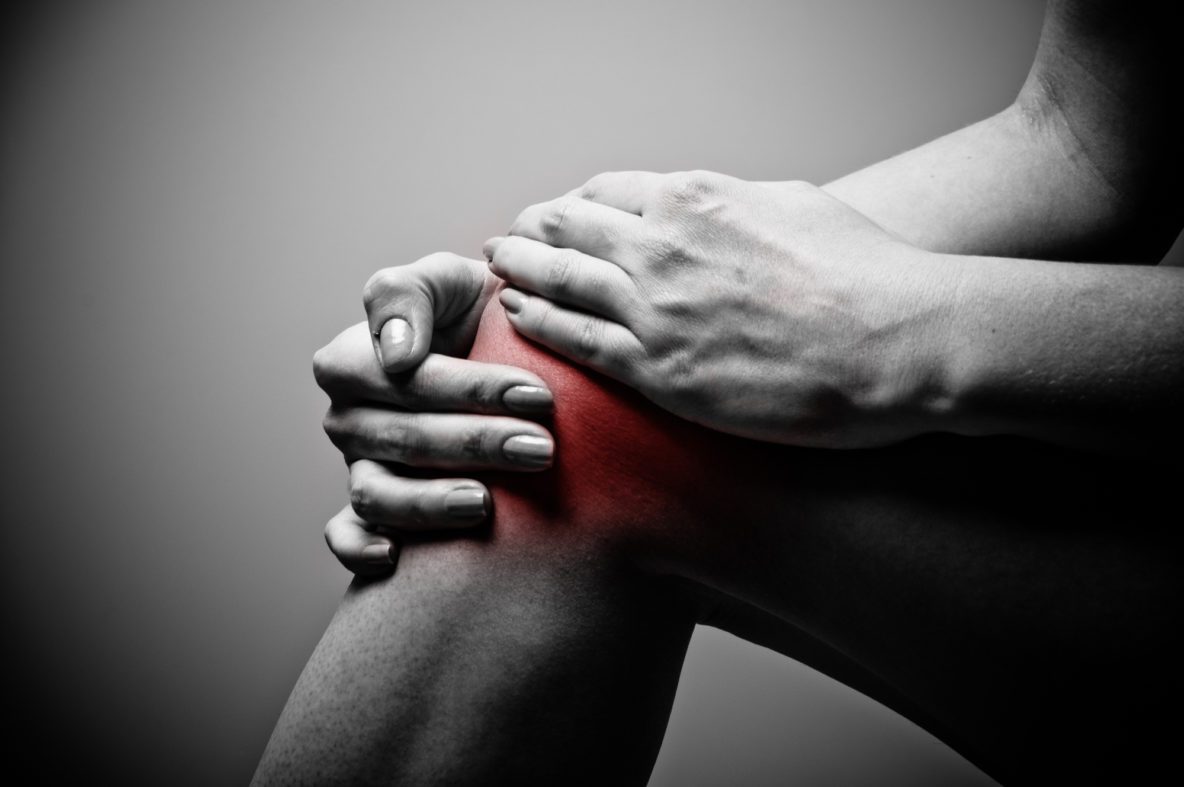If you're over 35, you could be among the estimated 7/10 women suffering from joint pain. And often this is just an accepted part of ‘getting older’ and managed by popping some Ibuprofen when the pain is bad.
There are obvious physical reasons for joint pain, such as injury, wear and tear, musculo-skeletal issues or bad posture.
But there are also underlying factors that can cause inflammation and lead to joint pain, especially as we get older. And these are often things we can do something about.
You can watch the video below or listen to the podcast.
Root causes of joint pain
Arthritis
Osteoarthritis – this is the breakdown of the cartilage that acts as a cushion and shock absorber for the joints.
Rheumatoid Arthritis – this is an auto immune disease where your immune system attacks the membranes surrounding your joints. Auto-immune conditions usually develop from inflammation in the gut, so investigating gut health is often helpful.
Changing Hormones
We do know that hormones play a vital role in joint and bone health. Many women start to report joint pain in their 40’s and 50’s as oestrogen levels start to decline through menopause.
- Oestrogen helps reduce inflammation, the main cause of joint pain and swelling. It helps to increase bone production and regulate fluid levels in your body, reducing oedema and swelling around joints.
- Thyroid hormone imbalance can also cause joint and muscle pain, and stiffness.
Stress
Stress inflammation is one of the most common issues inside the body. Excess cortisol can stimulate too many pro-inflammatory cytokines, and inhibit muscle, cartilage and bone production – causing lack of mobility and inflammation.
Diet
The food we eat can often lead to inflammation and joint pain. Here’s how that works.
- Carbohydrates & sugar
When you eat sugar and refined carbs, insulin is released to take the glucose out of your blood and into your liver and cells. Insulin is inflammatory, so the more you produce, the more inflammation can happen.
- Food Sensitivities
Foods you may be sensitive to can irritate the gut wall, making it ‘leaky’. These proteins (and other toxins) can get through into the bloodstream, where our immune system sees it as ‘foreign’ and attacks it. This immune response causes inflammation (anywhere and everywhere).
This can also happen with any food you may be intolerant to (gluten, dairy, soy, eggs, etc). Inflammation leads to pain & stiffness.
- Toxins
And it can happen if you’re exposed to toxins such as pesticides, food additives, artificial sweeteners, and other chemicals.
- Dehydration – water stimulates the production of synovial fluid between joints to help reduce friction and facilitate movement – it encourages the growth of new cells in the cartilage tissues & carries nutrients to the joint.
- Alcohol – can dehydrate your ligament and tissues.
Nutrient deficiencies
- Omega 3 Fats – a high Omega 6:3 ratio can stimulate pro-inflammatory pathways in the body (more bad fats, less healthy fats)
- Magnesium – without sufficient magnesium, calcium may be dumped as painful crystals in and around the joints.
- A vitamin D deficiency can also lead to weakness in the bones, as well as joint pain.
So essentially joint pain can be due to many factors. Which means there’s a lot you can try doing to relieve it.
10 ways to naturally support your joints
- Adopt a low GL diet – switch from white carbs to whole grains, eat plenty of healthy fats and protein at each meal, reduce sugar, caffeine and alcohol.
- Add anti-inflammatory foods to your diet – oily fish, nuts, seeds (especially flax and chia), fruit, veg, spices. Turmeric can help with inflammation and pain. Montmorency cherries have also had great results for those with arthritic pain.
- Eat some phytoestrogens to help balance oestrogen – the biggest source are organic soy and flaxseeds.
- Try an elimination diet – gluten, dairy, soy, eggs, corn, yeast are the main culprits. Go without for at least 3 weeks and see if symptoms improve.
- Stay away from processed food & vegetable oils – they contain trans fats and many food chemicals.
- Avoid artificial sweeteners and anything ‘low fat’.
- Stay hydrated – drink plenty of water throughout your day.
- Manage your stress levels – try deep belly breathing, reading, meditation, relax tapes, nature, warm baths, sleep.
- Low impact exercise – walking, swimming, pilates, yoga – all great for increasing blood flow to joints.
- Supplements – for joint pain, helpful supplements could include Magnesium (in oil form you can rub into the skin around the joint area), Vitamin D3 with K2, Omega 3; EPA/DHA, Glucosamine, Isoflavones, Turmeric, Collagen. See your health practitioner for advice on supplements that may help reduce inflammation and joint pain.
Get some functional health tests done if you suspect you have inflammation in the gut, or if your hormones might be out of balance.
Contact us for more info on that.

